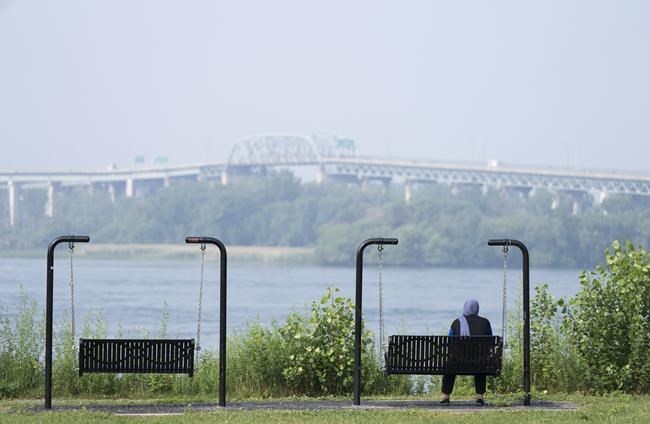Environment Canada says wildfire smoke drifting from western and northern parts of the country has created hazardous air quality in parts of northern Ontario that could get worse next week.
Warning preparedness meteorologist Steven Flisfeder says the areas of Pickle Lake, Summer Beaver Lake, Big Trout Lake and Sachigo Lake in Ontario have been under special air quality advisories for the past three days due to wildfires in Northwest Territories and British Columbia.
Flisfeder says wildfire smoke in those areas could cause eye and throat irritation and other symptoms, but it is not yet as severe as it was during Quebec wildfires in June.
He says people with respiratory conditions should stay indoors, and he urges everyone to pay close attention to changing air quality forecasts across the province.
Flisfeder says the smoke covering northern Ontario could make its way to southern parts of the province and Quebec, but not yet in concentrations that could pose a risk to the general population.
He says the air quality could worsen as of Sunday and into next week, after improving on Friday and Saturday.
The area east of James Bay in Quebec remains under a special air quality statement due to wildfires that have burned in the province since June.
This report by The Canadian Press was first published Aug. 18, 2023.
The Canadian Press


